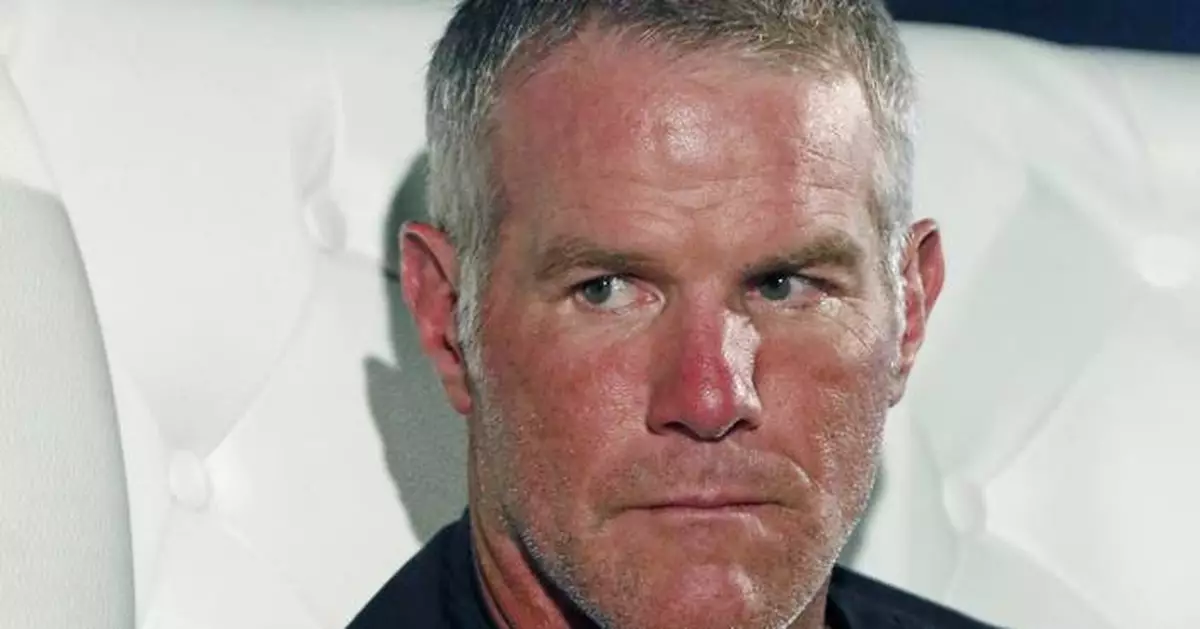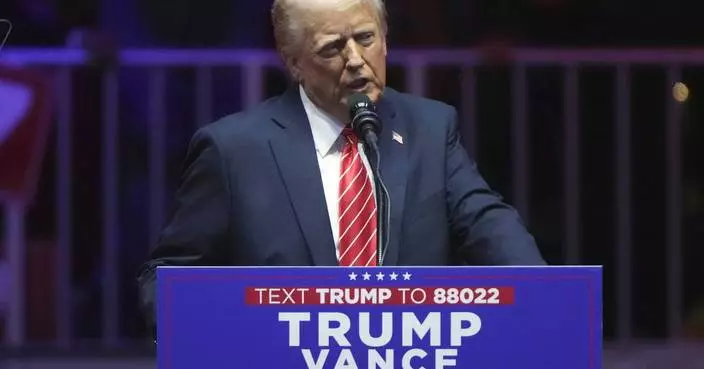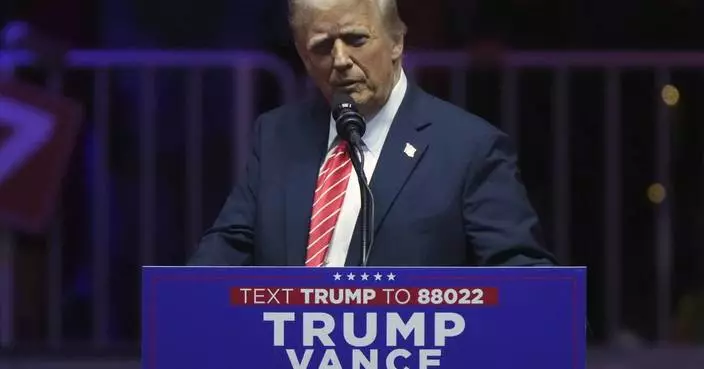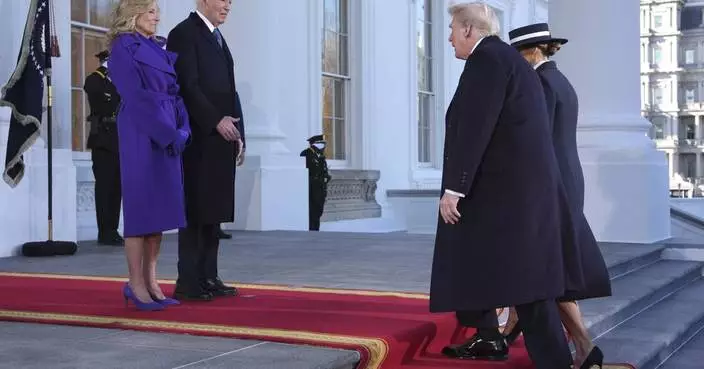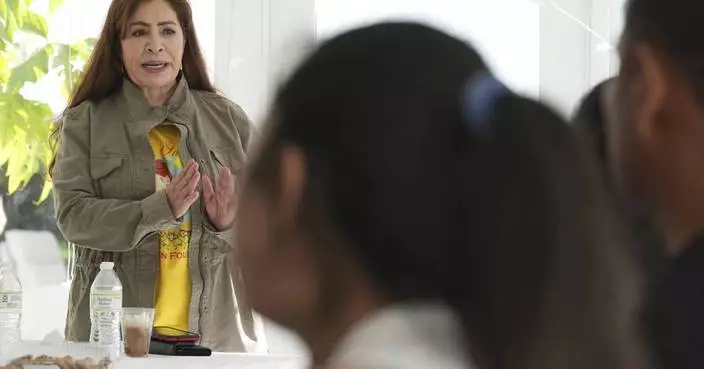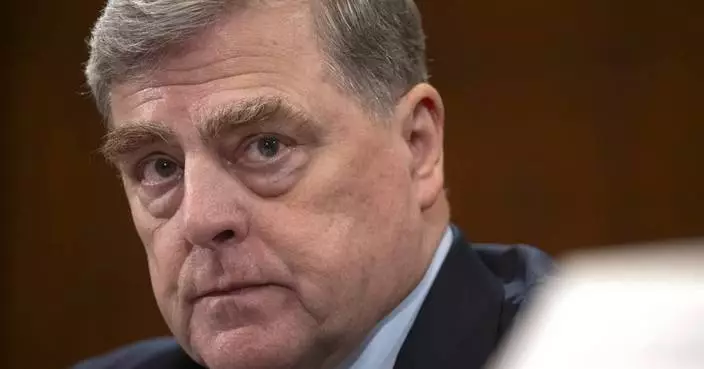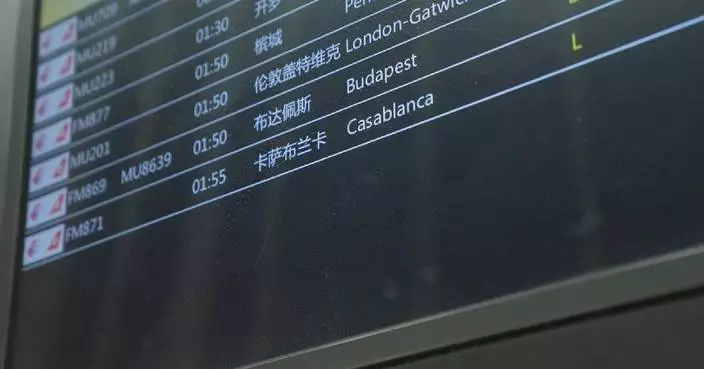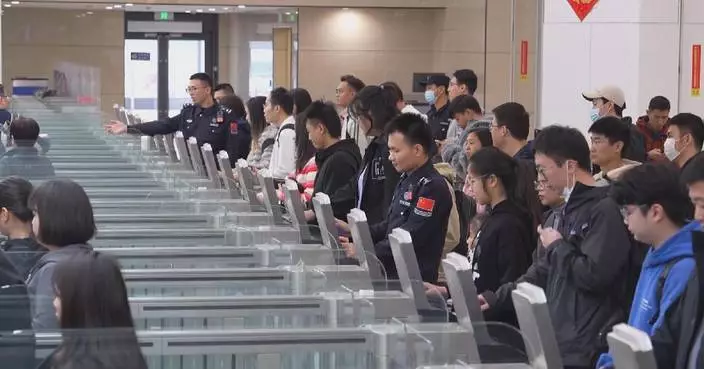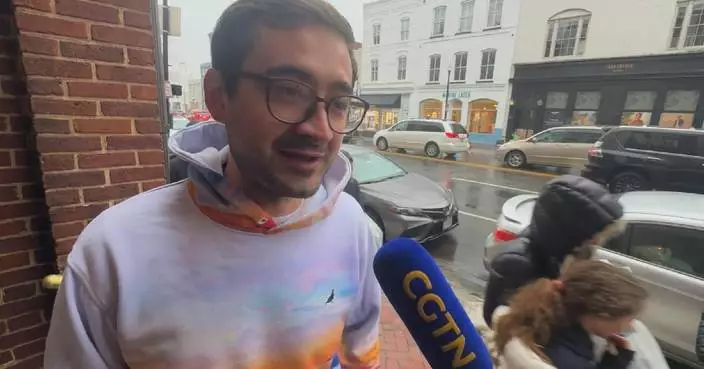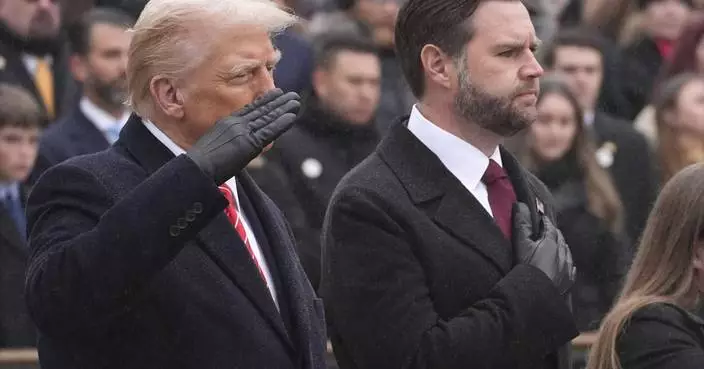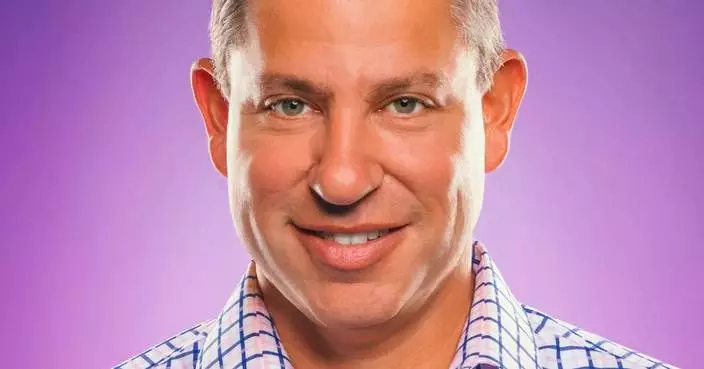JACKSON, Miss. (AP) — Retired NFL quarterback Brett Favre, who has repaid just over $1 million in speaking fees funded by a welfare program in Mississippi, is scheduled to appear before a Republican-led congressional committee that's examining how states are falling short on using welfare to help families in need.
The House Ways and Means Committee hearing in Washington is scheduled for Tuesday. A committee spokesperson, J.P. Freire, confirmed to The Associated Press on Friday that Favre is scheduled to appear and was invited by the chairman, Republican Rep. Jason Smith of Missouri.
Favre will take questions “per the usual witness policy,” Freire said. However, it's unclear how much the Pro Football Hall of Famer might say because a Mississippi judge in 2023 put a gag order on him and others being sued by the state.
House Republicans have said a Mississippi welfare misspending scandal involving Favre and others points to the need for “serious reform” in the Temporary Assistance for Needy Families program.
“Democrats have failed to hold a single hearing on TANF or conduct oversight to identify ways the program could be improved,” Republicans on the Ways and Means Committee said in a November 2022 letter to U.S. Health and Human Services Secretary Xavier Becerra.
The letter did not mention that Republicans control the Mississippi government now, as they did during the welfare misspending scandal that officials called the state's largest public corruption case.
Mississippi has ranked among the poorest states in the U.S. for decades, but only a fraction of its federal welfare money has been going to families. Instead, the Mississippi Department of Human Services allowed well-connected people to waste tens of millions of welfare dollars from 2016 to 2019, according to Mississippi Auditor Shad White and state and federal prosecutors.
Favre is not facing any criminal charges, but he is among more than three dozen defendants in a civil lawsuit the state filed in 2022. The suit demands repayment of money that was misspent through TANF.
White, a Republican, said in 2020 that Favre had improperly received $1.1 million in speaking fees from a nonprofit organization that spent welfare with approval from the state Department of Human Services. White said Favre did not show up for the speeches. Although Favre repaid the $1.1 million, he still owes nearly $730,000 in interest, White said.
The TANF money was to go toward a volleyball arena at the University of Southern Mississippi. Favre agreed to lead fundraising efforts for the facility at his alma mater, where his daughter started playing on the volleyball team in 2017.
A nonprofit group called the Mississippi Community Education Center made two payments of welfare money to Favre Enterprises, the athlete’s business: $500,000 in December 2017 and $600,000 in June 2018.
Court records show that on Dec. 27, 2017, Favre texted the center's director, Nancy New: “Nancy Santa came today and dropped some money off (two smiling emojis) thank you my goodness thank you.”
“Yes he did,” New responded. “He felt you had been pretty good this year!”
New pleaded guilty in April 2022 to charges of misspending welfare money, as did her son Zachary New, who helped run the nonprofit. They await sentencing and have agreed to testify against others.
Favre said he didn’t know the payments he received came from welfare funds and noted his charity had provided millions of dollars to poor kids in his home state of Mississippi and Wisconsin, where he played most of his career with the Green Bay Packers.
Punchbowl News was first to report about Favre's appearance before the Ways and Means Committee.
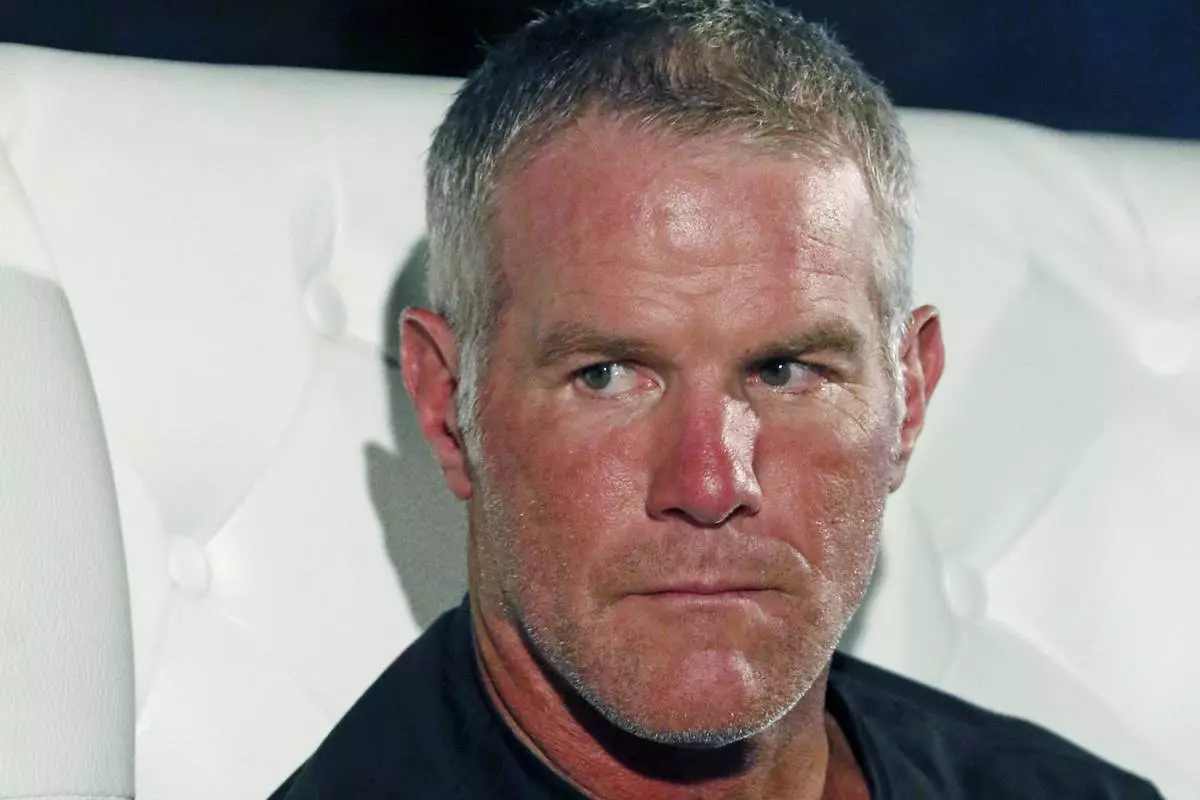
FILE - Retired NFL quarterback Brett Favre participates in a question and answer session at a fundraiser for Willowood Developmental Center, a facility that provides training and assistance for special needs students, Wednesday, Oct. 17, 2018 in Jackson, Miss. (AP Photo/Rogelio V. Solis, File)
LONDON (AP) — A British teen pleaded guilty Monday to murdering three girls and attempting to kill 10 other people in what a prosecutor said was a “meticulously planned” stabbing rampage at a Taylor Swift-themed dance class in England last summer.
Axel Rudakubana, 18, entered the surprise plea as jury selection had been expected to begin at the start of his trial in Liverpool Crown Court.
The July 29 stabbings sent shock waves across the U.K. and led to a week of widespread rioting across parts of England and Northern Ireland after the suspect was falsely identified as an asylum-seeker who had recently arrived in Britain by boat. He was born in Wales.
The attack occurred on the first day of summer vacation when the little girls at the Hart Space, a sanctuary hidden behind a row of houses, were in a class to learn yoga and dance to the songs of Taylor Swift. What was supposed to be a day of joy turned to terror and heartbreak when Rudakubana, armed with a knife, intruded and began stabbing the girls and their teacher in the seaside town of Southport in northwest England.
“This was an unspeakable attack — one which left an enduring mark on our community and the nation for its savagery and senselessness," Deputy Chief Crown Prosecutor Ursula Doyle said. “A day which should have been one of carefree innocence; of children enjoying a dance workshop and making friendship bracelets, became a scene of the darkest horror as Axel Rudakubana carried out his meticulously planned rampage.”
Prosecutors haven’t said what they believe led Rudakubana — who was days shy of his 18th birthday — to commit the atrocities, but Doyle said that it was clear he had a “a sickening and sustained interest in death and violence.”
Rudakubana had consistently refused to speak in court and did so once again when asked to identify himself at the start of the proceedings. But he broke his silence when he was read the 16-count indictment and asked to enter a plea, replying “guilty” to each charge.
He pleaded guilty to three counts of murder, 10 counts of attempted murder and additional charges related to possessing the poison ricin and for having an al-Qaida manual.
Rudakubana faces life imprisonment when sentenced Thursday, Justice Julian Goose said.
Defense lawyer Stanley Reiz said that he would present information to the judge about Rudakubana's mental health that may be relevant to his sentence.
The surviving victims and family members of those killed were absent in court, because they had expected to arrive Tuesday for opening statements.
Goose asked the prosecutor to apologize on his behalf that they weren't present to hear Rudakubana plead guilty.
He pleaded guilty to murdering Alice Da Silva Aguiar, 9, Elsie Dot Stancombe, 7, and Bebe King, 6.
Eight other girls, ranging in age from 7 to 13, were wounded, along with instructor Leanne Lucas and John Hayes, who worked in a business next door and intervened. Fifteen other girls, as young as 5, were at the class but uninjured. Under a court order, none of the surviving girls can be named.
Hayes, who was stabbed and seriously wounded, said he still had flashbacks to the attack and was “hugely upset at the time that I wasn’t able to do more.”
“But I did what I could in the circumstances,” he told Sky News. “I’m grateful to be here, and by all accounts I’ll make a full recovery, at least physically. … I’m going to be OK and others won’t be, and that’s really where I I think the focus of attention should be.”
Police said the stabbings weren’t classified as acts of terrorism because the motive wasn’t known.
Several months after his arrest at the scene of the crime, Rudakubana was charged with additional counts for production of a biological toxin, ricin and possession of information likely to be useful to a person committing or preparing to commit an act of terrorism for having the manual in a document on his computer.
Police said they found the evidence during a search of his family's home in a neighboring village.
The day after the killings — and shortly after a peaceful vigil for the victims — a violent group attacked a mosque near the crime scene and pelted police officers with bricks and bottles and set fire to police vehicles.
Rioting then spread to dozens of other towns over the next week when groups made up mostly of men mobilized by far-right activists on social media clashed with police during violent protests and attacked hotels housing migrants.
More than 1,200 people were arrested for the disorder and hundreds have been jailed for up to nine years in prison.
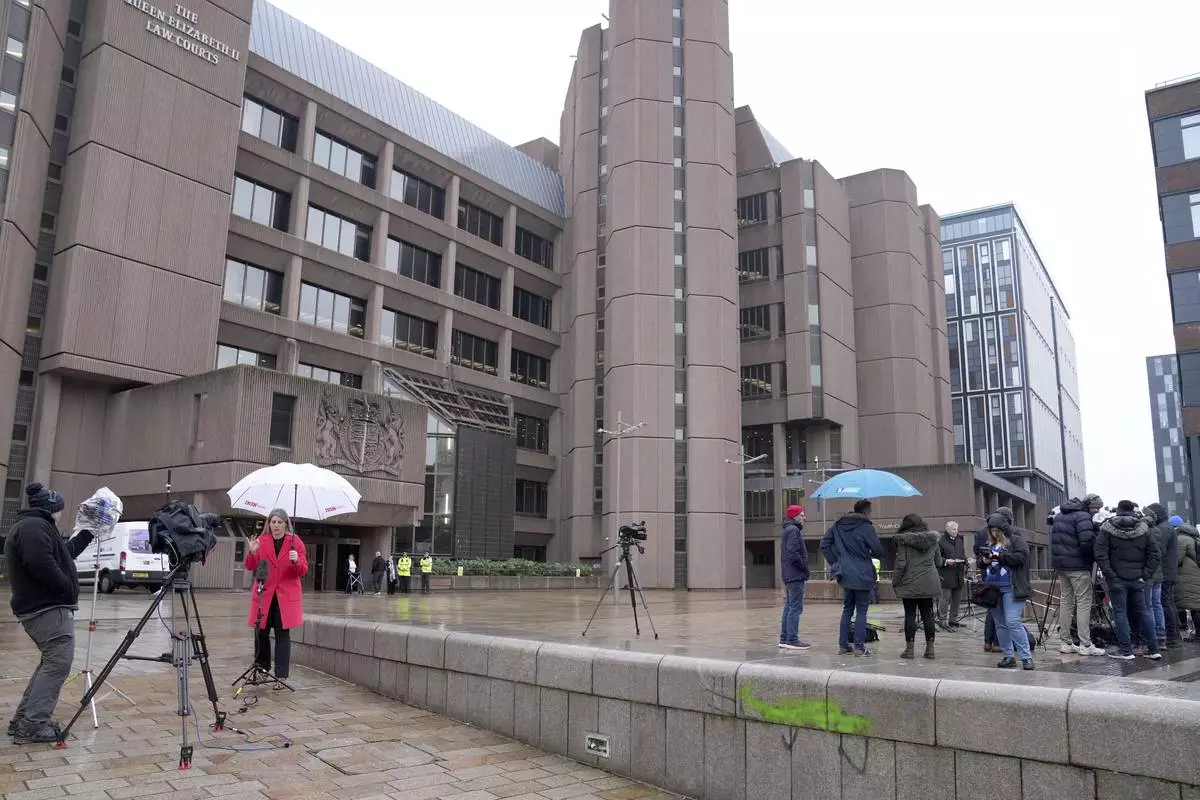
Media waits outside Liverpool Crown Court in Liverpool, England, Monday, Jan. 20, 2025 where Axel Rudakubana is charged with killing three girls and wounding 10 other people in a stabbing rampage at a Taylor Swift-themed dance class in England last summer.(AP Photo/Jon Super)

A prison van believed to contain Axel Rudakubana leaves Liverpool Crown Court in Liverpool, England, Monday, Jan. 20, 2025 where Rudakubana is charged with killing three girls and wounding 10 other people in a stabbing rampage at a Taylor Swift-themed dance class in England last summer.(AP Photo/Jon Super)
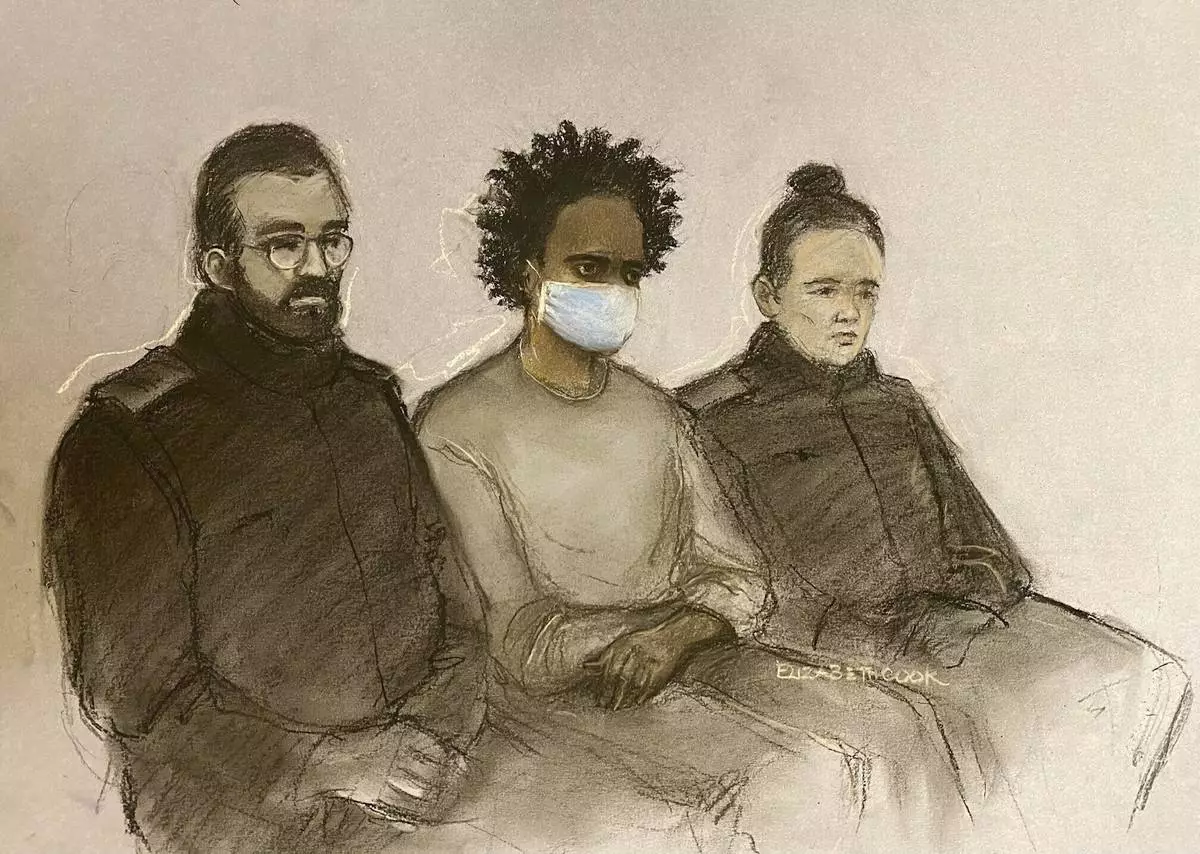
In this Court artist sketch by Elizabeth Cook, Southport stabbings suspect Axel Rudakubana appears on the first day of his trial at Liverpool Crown Court, where he has pleaded guilty to killing three young girls and wounded 10 other people in a knife attack at a Taylor Swift-themed dance class, in Liverpool, England, Monday, Jan. 20, 2025. (Elizabeth Cook/PA via AP)
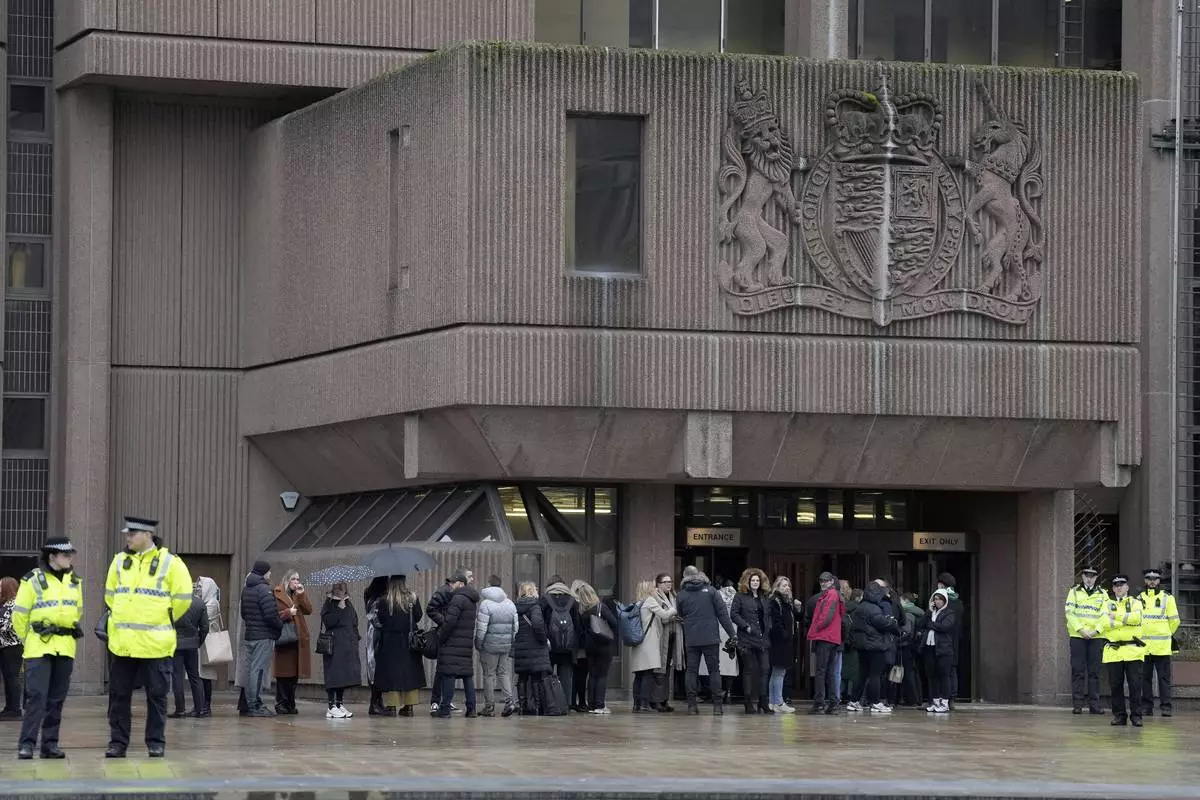
People queue at Liverpool Crown Court in Liverpool, England, Monday, Jan. 20, 2025 where Axel Rudakubana is charged with killing three girls and wounding 10 other people in a stabbing rampage at a Taylor Swift-themed dance class in England last summer.(AP Photo/Jon Super)

A prison van believed to contain Axel Rudakubana arrives at Liverpool Crown Court in Liverpool, England, Monday, Jan. 20, 2025 where Rudakubana is charged with killing three girls and wounding 10 other people in a stabbing rampage at a Taylor Swift-themed dance class in England last summer.(AP Photo/Jon Super)
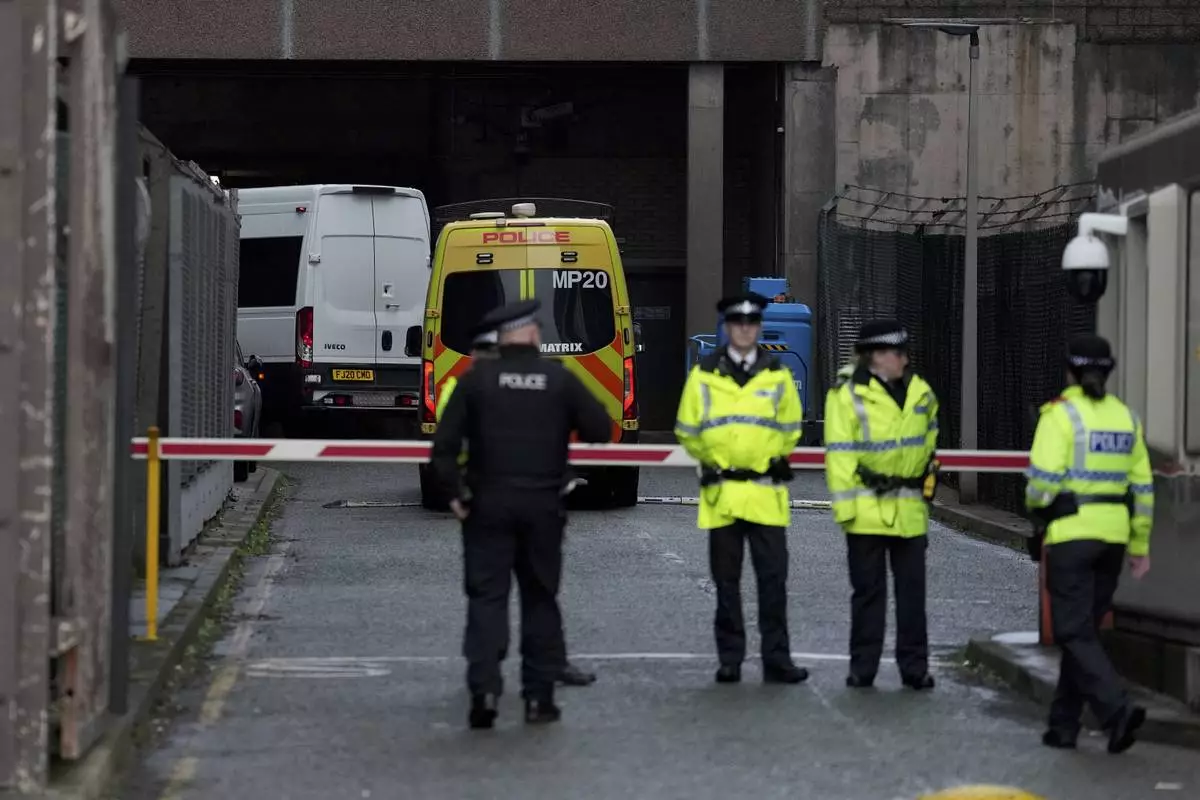
A prison van believed to contain Axel Rudakubana arrives at Liverpool Crown Court in Liverpool, England, Monday, Jan. 20, 2025 where Rudakubana is charged with killing three girls and wounding 10 other people in a stabbing rampage at a Taylor Swift-themed dance class in England last summer.(AP Photo/Jon Super)
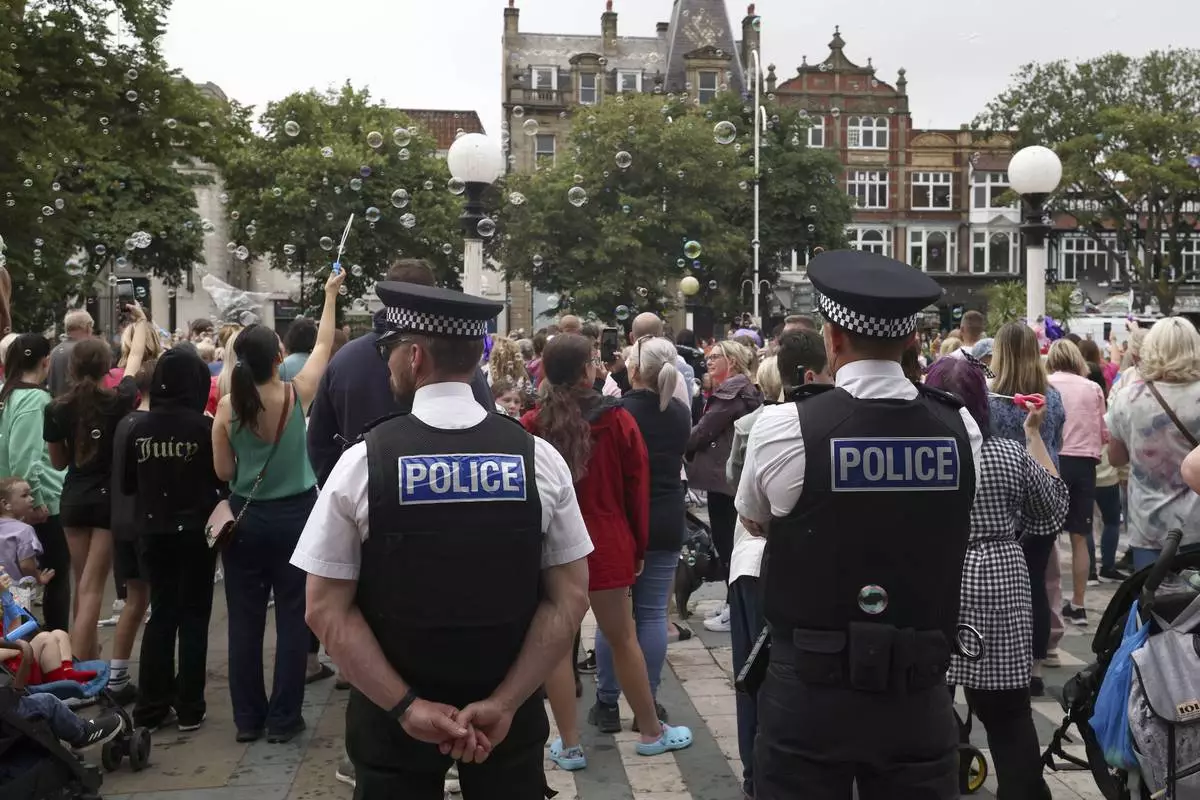
FILE - Police officers watch members of the public outside the Town Hall in Southport, England, Aug. 5, 2024 after three young girls were killed in a knife attack at a Taylor Swift-themed holiday club the week before. (AP Photo/Darren Staples, File)
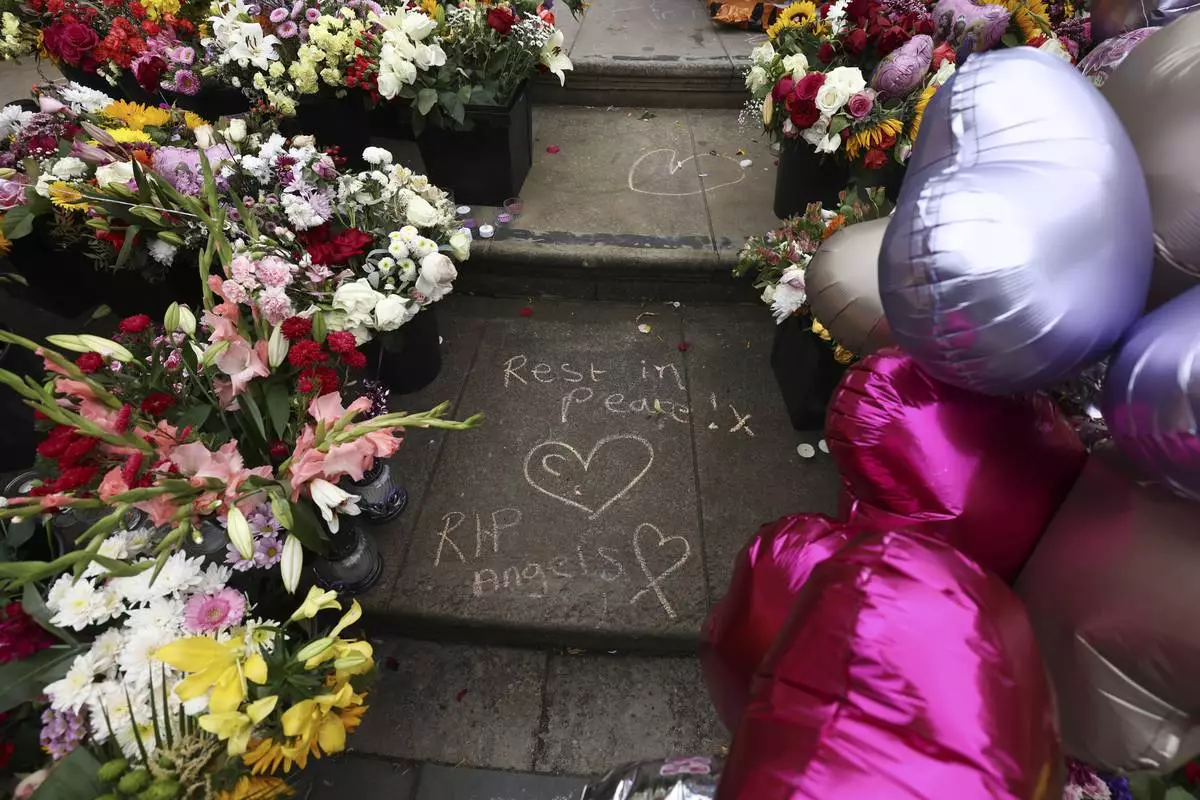
FILE - Tributes are seen outside the Town Hall in Southport, England, Aug. 5, 2024 after three young girls were killed in a knife attack at a Taylor Swift-themed holiday club the week before. (AP Photo/Darren Staples, File)



